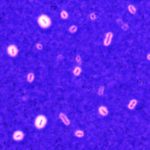About
Phenotypic heterogeneity is defined as the difference in a particular trait between genetically identical cells growing in a homogenous environment. It is an evolvable trait upon which natural selection can act to increase survival of cells, for instance, in fluctuating environments. We have recently identified phenotypic heterogeneity in the production of extracellular capsule in the gut commensal and nosocomial pathogen Klebsiella pneumoniae. Given the novelty of the discovery, we first aim at fully characterizing the heterogeneity profiles and phenotype prevalence across the genus diversity and how it may be influenced by the surrounding environment. We seek to understand the gene-regulatory network which influences the degree of heterogeneity and whether there are specific genetic determinants. Further, with this project we will characterize the biological role of this phenotypic heterogeneity and its effect on evolutionary adaptation and disease outcome. Indeed, the capsule is a major virulence factor, which strongly drives species evolution by specifically interacting with mobile genetic elements, but also influences the adaptive landscape of a species by shaping genotypic evolution by mutations. Taken together, we will leverage molecular microbiology, genetics, comparative genomics and infection models to tackle how changes at the single-cell level are regulated and may influence a population, its ability to cause disease, resist to antibiotics and to adapt to the environment, and thus to determine its consequences at the microevolutionary level.



